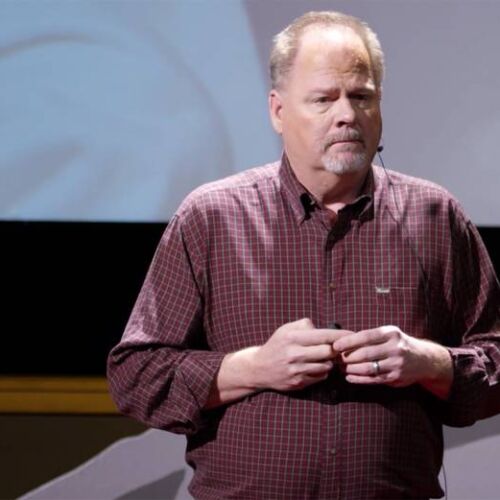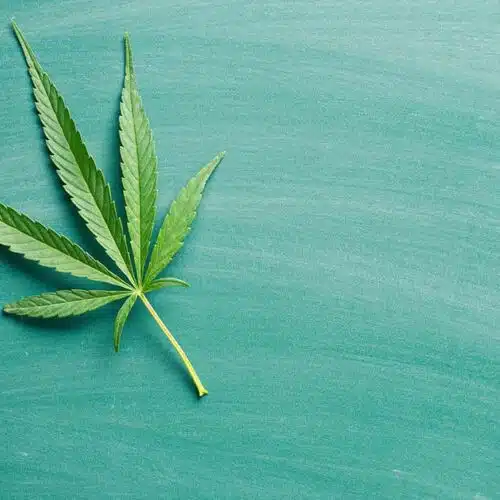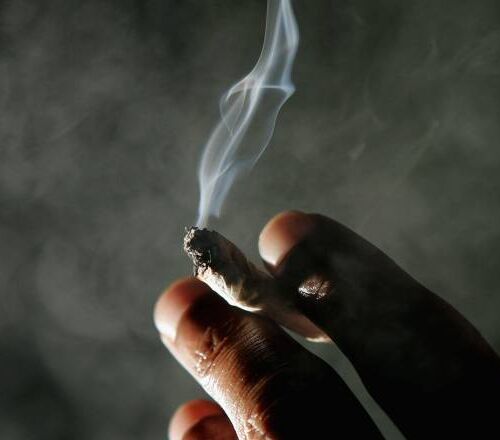The Canadian Pediatric Society released a statement on the therapeutic treatment of children with cannabis this week which reads, in part, “There is little evidence supporting the use of medical cannabis in children and most front-line doctors should not be prescribing the drug to young people.” But many parents across Canada say that cannabis has been a huge help to their children – in particular, it’s been used to treat children who suffer severe epileptic seizures. Brent spoke to Dr. Michael Rieder, author of the CPS statement, and Mandy McKnight, the mother of a Liam, a 7-year-old boy living with a severe form of epilepsy. She says cannabis has reduced her son’s seizures from up to seventy per day to one this month.
These interviews have been edited for clarity and length.
Dr. Michael Rieder
Brent Bambury: What worries you most about how cannabis is used to treat children in Canada right now?
Dr. Michael Rieder: I think what worries me is not the fact it’s used, or that it’s being used for children. It’s the lack of information and guidance for practitioners and parents. I think if you look at our statement, we indicate that cannabis for certain conditions in children probably is helpful. The issue is that, unlike other drugs, cannabis has been thrust out and the burden has been placed on the practitioner which we don’t think is fair. Parents are entitled to know how much they should be using, how long the should be using, how often… That information is just not out there and we think that’s not fair. Certainly there’s no question for kids with really bad seizures, some of those children do benefit from medical cannabis treatment, no problem.
BB: But do you believe that there could be other children there actually being hurt by taking cannabis right now?
MR: You’re reading my mind. That’s exactly what I was thinking. It’s not a risk- free therapy. There are certain risks attached to it. Like any potent psychoactive drug, there are benefits and risks. There are short term risks and we know about them: red eyes, dry mouth, etcetera, but there’s also longer term concerns about brain development. So I think it requires careful consideration of risk and benefit and we think that people who are prescribing should be having those conversations and closely monitoring their patients. We think that there needs to research so that families and practitioners have the information they need to provide the best return for Canada’s children.
BB: But doesn’t your statement suggest to anybody, even if they’re getting results, that they may be better off right now sticking with the status quo sticking with traditional pharmaceutical treatments, even though as you said those can also be risky?
MR: Oh, absolutely, and that’s the issue. The problem is that if you have bad seizures, you are going to be on a potent drug one way or the other. The question is, which is the most risk-free treatment? I think the first line of treatment needs to be conventional medication. That being said, when it fails – and it does fail in a number of cases – if medical marijuana is the next option, you use it with thoughtful discussion and a lot of monitoring, as you would with any other potent psychoactive drug.
BB: Does the statement that you authored allow for that nuance? It’s backed by the authority of the Canadian Paediatric Society. Do you think it may make it harder for parents to get the cannabis prescribed for their kids that they believe is working?
MR: I don’t… Well, it’s a good question. I don’t I think I think it should. I think it should be administered with more care. I don’t think that necessarily means harder. I think the kids who have really hard-to-treat seizures are mostly being seen by paediatric neurologists and experts in the area and those are exactly the people that we think should be prescribing medical cannabis.
BB: But some of the parents who are treating their children right now are going to see your statement this week as a threat. They’re going to see this is a potential roadblock to the treatment that they think is working for their child. So what do you say to them?
MR: Our statement is intended to inform and guide. First of all, medical marijuana is a legally available drug in Canada. So we’re not saying that it should not be available. Health Canada has made it available. We just think Health Canada should be consistent. If Health Canada brings a drug out, the drug comes out with dosing information, safety information. And that’s not there for medical marijuana. So we’re not saying that Health Canada has made a bad decision. It’s a legally available drug. It should be used for the benefit of children. Part of the problem with medical marijuana, to be blunt is there’s this mystique attached to it. Because it’s marijuana, it must be unquestionably be safe. And that ain’t necessarily so. I respect marijuana. It’s a psycho-active drug. It’s got potent properties. Some are beneficial, some may not be. I think we want to make sure we get the maximum benefit and minimum risk.
BB: So doctor, if there is a parent listening to us right now who believes that their child’s suffering is reduced by the therapeutic use of marijuana, what is your message to them in light of the statement you made?
MR: Our message is make sure you work with your doctor so that your child gets that benefit, and you watch out for that risk. And that you understand what you know what you’re doing. If I had a child who was having fifty seizures a day, would I use it for my child? Yeah, I would. I’d work with out paediatric neurologist. I would say I’d like to try this, watch for side effects and go forward.
BB: What is your message to government? What’s your message to Health Canada today?
MR: My message to Health Canada is you’re putting this on the practitioners. That’s not fair. That’s not right. Let’s get some funding. Let’s do some research. And bottom line is: our statement doesn’t say don’t use it, because we do want to use it. We just want to use it like any drug for kids, cautiously.
Mandy McKnight
Brent Bambury: You just heard Dr Rieder. Do you think the statement that he authored this week could make it harder for parents like yourself to get prescriptions for their kids?
Mandy McKnight: I definitely think that and I think his interview contradicts the statement. When I read the statement, I feel threatened. I feel like this is going to make it more difficult for parents like me to get access to cannabis. But in his interview, it sounds like he is saying, ‘Oh, we’re not saying don’t use cannabis, we’re just saying use it with caution.’ But I don’t get that from the statement at all.
BB: What’s been your experience? Has it been difficult to find doctors who will prescribe cannabis for children?
MM: It is very difficult. It is probably the number one barrier. It’s hard enough to find a doctor who will prescribe medical marijuana and then when you put the pediatric portion into it, it’s even more difficult.
BB: What do they say to you?
MM: The same thing that he’s saying. There’s no clinical trials. And they want a double-blind placebo clinical trial. But that’s years away. Our kids, they don’t have years. We need to find something that’s going to help them now.
BB: What was Liam’s life like? What was the quality of life like before you began treatment with cannabis?
MM: It wasn’t great. We had tried and failed ten anti-epileptic medications. He’s not a candidate for surgery because he has a gene mutation in his entire body. And despite everything that we did, he could have had fifty, sixty, seventy seizures a day. Despite everything we were doing.
BB: And what what is life like now?
MM: Oh my God, it is amazing. Don’t get me wrong, cannabis has not been a cure for us. He still has seizures. But the seizures that he had before cannabis, he would have a seizure and the seizure could be four minutes long, and the post period where he would have to sleep off the effects of the seizure could be three hours. Now, he could have a seizure, it’s ten seconds and he literally sits back up and just continues on with what he was doing.
BB: Dr. Reider said that if he was in your situation and he had a child that might need these treatments, he would talk to his neurologist about that. What do you think of that?
MM: Well, I think the good doctor is going to have a big surprise coming to him because as soon as he goes in to talk to his neurologist about using cannabis, they are going to put up their hands and they’re going to say, ‘I’m sorry, sir. We can’t help you with cannabis because the college guidelines say that we can’t prescribe to people under twenty-five. The statement from the Paediatric Society says that we shouldn’t be prescribing cannabis to kids because we don’t have the proper guidelines. What is he going to do to help his child?
BB: And you see that response – that possible response from the neurologist – as being a direct consequence of the type of statement that was made earlier this week, do you?
MM: Absolutely, because I’ve I’ve spoken to Liam’s neurologist and other doctors where they have directly quoted. When the college came down with their guidelines not prescribe in cannabis to kids under twenty-five. I heard that. I heard that directly from Liam’s neurologist’s mouth. And they could they talk about brain development and all these things, but the thing is is our kids’ brains are already being damaged by seizures and by the other medications. If Liam lives to be a teenager – which I would think would be an amazing thing… I’m worried about his brain today. I’m not worried about his brain when he’s going to be fifteen. I just want him to get to fifteen. He already has brain damage. I’m trying to keep my son alive.
BB: So now in light of the statement that we’re talking about do you think that parents will will take matters into their own hands if doctors refuse to prescribe cannabis for their kids?
MM: Well, I think parents have been taking things into their own hands up until this point.
BB: Isn’t that dangerous?
MM: It is dangerous and that’s a big problem. He says in his interview that. Health Canada is putting the onus on the practitioner. But by the practitioner ignoring what’s going on, now you’re putting all the onus on the parent. As a parent, I need medical guidance. I welcome and I want medical guidance. And by releasing a statement like this, it’s just making more excuses for the doctors.
BB: But Dr Rieder says that what he’s trying to do here is to make sure that this drug is treated like any other drug prescribed to kids, and that that it’s done safely. So isn’t he just doing his job as a doctor, looking out for kids?
MM: Absolutely, absolutely. I totally agree. I agree there need to be clinical trials. The last government that we had refused to acknowledge that there was any medicinal benefits to cannabis whatsoever. So there was no movement whatsoever with the previous government.
BB: The Canadian Paediatric Society made this statement on cannabis and children this week. Obviously, you disagree with that. But now I want to hear your statement. If you were speaking directly to a doctor about this, what would you tell them?
MM: I would tell them that there are thousands… I talk to parents every day who are at the end of their medical journey with conventional treatment. The conventional treatments aren’t working.This is the last hope for thousands of us. So honestly I just feel like we can’t do it on our own. Parents are going to do it anyway, like we did. We need them to step up and to guide us.
-CBC Radio


